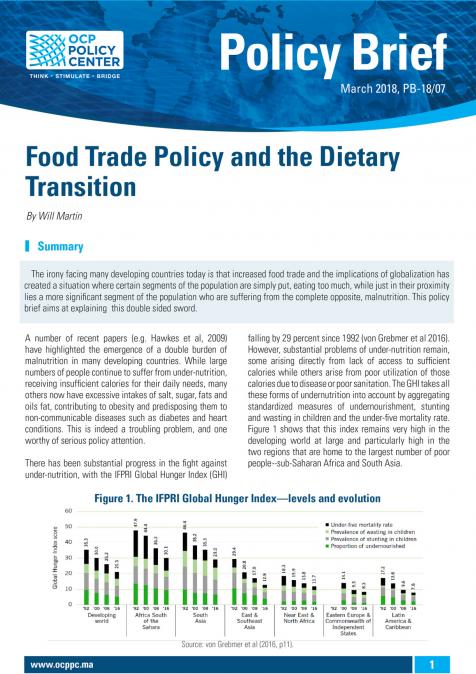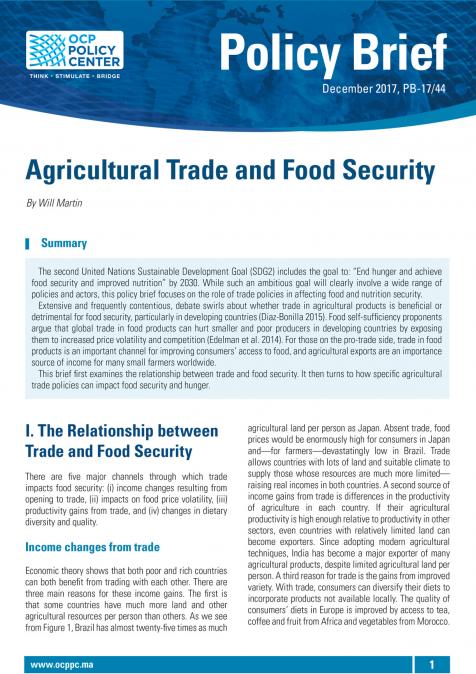Publications /
Policy Brief
Policy Brief
Food Trade Policy and the Dietary Transition
March 23, 2018
The irony facing many developing countries today is that increased food trade and the implications of globalization has created a situation where certain segments of the population are simply put, eating too much, while just in their proximity lies a more significant segment of the population who are suffering from the complete opposite, malnutrition. This policy brief aims at explaining this double sided sword.




